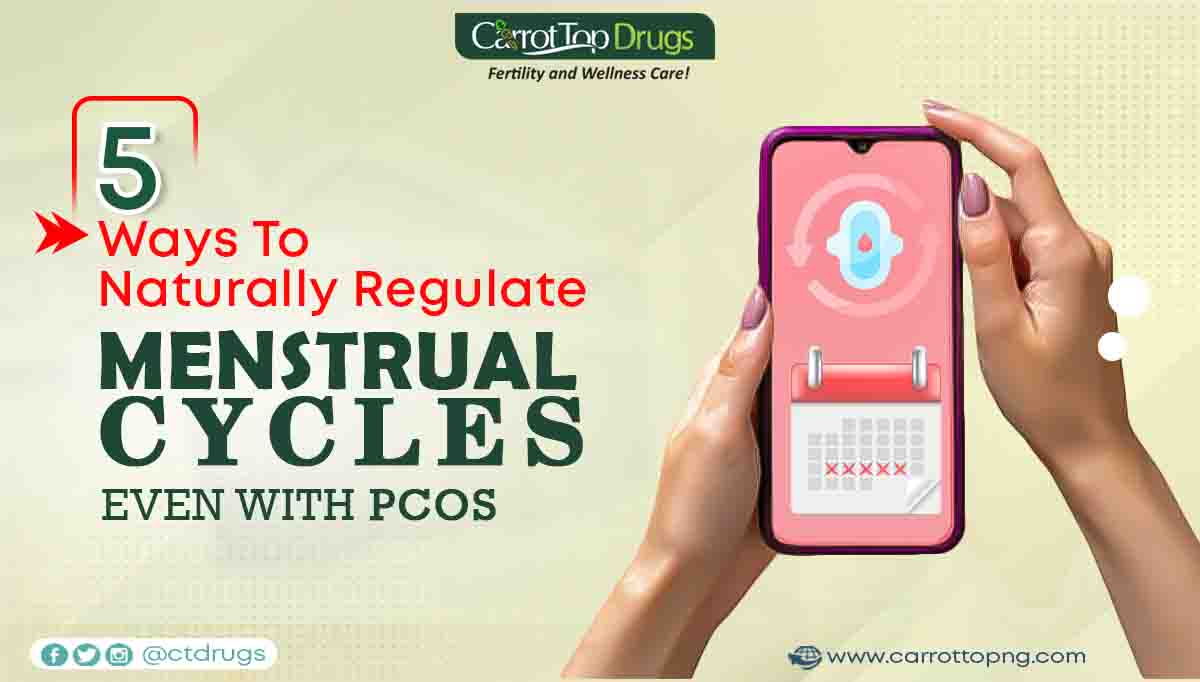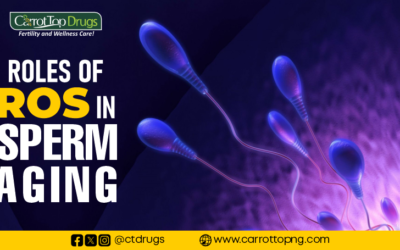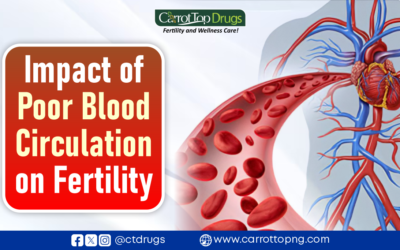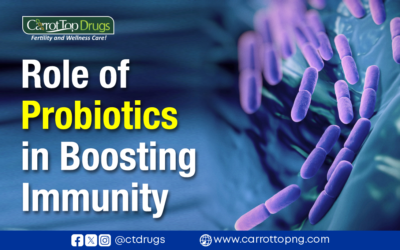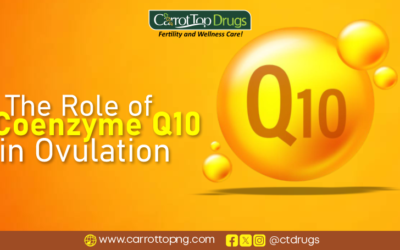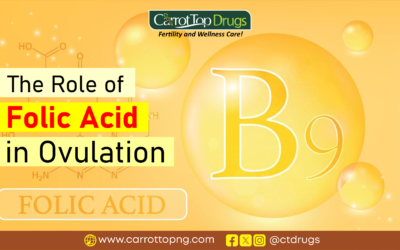Introduction
Polycystic Ovary Syndrome (PCOS) is a prevalent hormonal disorder among women of reproductive age, often resulting in irregular menstrual cycles. Polycystic ovarian syndrome is a complex condition experienced in women that is characterized by elevated androgen levels, menstrual irregularities, and/or small cysts on one or both ovaries. These disruptions can lead to various health challenges, including fertility issues. While medical treatments are available, many individuals opt for natural methods to regulate their menstrual cycles and manage PCOS. In this article, we will explore how to naturally regulate menstrual cycles in PCOS.
I. Understanding PCOS and Its Impact on Menstrual Cycles
Polycystic Ovary Syndrome (PCOS) is a common endocrine disorder affecting a significant number of women of reproductive age. It disrupts the regular menstrual cycle and potentially causes various health complications.
A. Brief Overview of PCOS
Polycystic Ovary Syndrome (PCOS), abbreviated as PCOS, is a prevalent endocrine disorder characterized by an imbalance in reproductive hormones. This hormonal imbalance leads to the formation of small cysts on the ovaries, disrupting the regular release of eggs and thus affecting the menstrual cycle. However, the absence of cysts doesn’t mean that it is not PCOS. The hallmark of PCOS is the elevation of androgens which is referred to as hyperandrogenism.
Prevalence of PCOS
As stated earlier, PCOS is a condition where a woman’s ovaries produce higher than normal levels of androgens (male hormones), which can disrupt ovulation and the menstrual cycle. It is a widespread disorder. According to WHO, it affects about 8-13% of women of reproductive age and about 70% of the cases are undiagnosed. However, in Sub-Saharan Africa, the prevalence is between 16-32%.
Common Symptoms and Complications
The symptoms of PCOS can vary from person to person but typically include:
- Irregular menstrual cycles or amenorrhea (absence of menstruation)
- Excessive hair growth (hirsutism)
- Acne and oily skin
- Weight gain and obesity
- Insulin resistance and an increased risk of type 2 diabetes
- Fertility problems and difficulty conceiving
- PCOS can lead to significant emotional and psychological distress due to these symptoms and their impact on fertility and overall well-being.
B. How PCOS Affects Menstrual Cycles
PCOS primarily affects the menstrual cycle by causing irregularities and disruptions in the normal hormonal processes that control ovulation and menstruation.
Irregular Menstrual Cycles and Anovulation
One of the hallmark effects of PCOS is irregular menstrual cycles, which can range from infrequent or absent periods to heavy, prolonged bleeding. Anovulation, where ovulation doesn’t occur regularly, is a significant factor contributing to menstrual irregularities in PCOS.
Hormonal Imbalances: Excess Androgens and Insulin Resistance
Elevated levels of androgens, such as testosterone, disrupt the menstrual cycle and can lead to symptoms like hirsutism and acne. Insulin resistance, a common feature in PCOS, exacerbates androgen levels, further disrupting the menstrual cycle and contributing to weight gain and metabolic complications.
Understanding how PCOS impacts the menstrual cycle is essential for implementing natural ways to regulate menstrual cycles effectively. Addressing hormonal imbalances and promoting regular ovulation through natural means is crucial for managing PCOS and improving overall reproductive health.
II. Lifestyle Changes to Regulate Menstrual Cycles
Lifestyle modifications play a significant role in managing PCOS and regulating menstrual cycles. Implementing these changes can help improve hormonal balance, enhance insulin sensitivity, and promote overall well-being. This section discusses essential lifestyle adjustments that can naturally regulate menstrual cycles in PCOS effectively.
A. Diet and Nutrition
1. Low Glycemic Index (GI) Diet
One of the ways to naturally regulate menstrual cycles in PCOS is by taking foods with low sugar content. A low glycemic index diet focuses on consuming foods that have a minimal impact on blood sugar levels. Foods with a low GI, such as whole grains, fruits, vegetables, and legumes, can aid in stabilizing blood sugar and insulin levels, crucial in managing PCOS and its effect on menstrual cycles.
2. Balanced Macronutrients: Proteins, Fats, and Carbohydrates
Balancing macronutrients—proteins, fats, and carbohydrates—in the diet is essential. Including lean proteins, healthy fats, and complex carbohydrates can support a stable metabolism and maintain energy levels throughout the day.
3. Importance of Fiber-Rich Foods
Fiber-rich foods, like fruits, vegetables, whole grains, and legumes, can help regulate blood sugar levels, improve digestion, and aid in weight management. This way, they help naturally regulate menstrual cycles in PCOS. They contribute to a feeling of fullness, potentially reducing overeating and supporting weight control—an important aspect for individuals with PCOS.
4. Herbal Teas and Supplements
Certain herbal teas and supplements, like spearmint tea and cinnamon, have shown potential in managing PCOS symptoms. These natural remedies can help to naturally regulate menstrual cycles in PCOS.
B. Regular Exercise and Physical Activity
1. Aerobic Exercises and Its Impact on Insulin Sensitivity
Engaging in regular aerobic exercises, such as brisk walking, jogging, or cycling, can improve insulin sensitivity and help manage weight. Enhanced insulin sensitivity is crucial for individuals with PCOS as it aids in regulating hormonal imbalances that affect menstrual cycles.
2. Strength Training and Muscle Building
Incorporating strength training exercises, using body weight or weights, can help build muscle mass. Muscle tissue is metabolically active and can improve insulin sensitivity, enhance metabolism, and support weight management.
3. Stress Reduction Techniques
Practicing stress reduction techniques, like meditation and deep breathing, can reduce stress levels. Chronic stress can exacerbate hormonal imbalances, impacting menstrual cycles. Yoga and similar practices promote relaxation, which is beneficial for hormone regulation and overall well-being.
C. Stress Management and Adequate Sleep
1. Stress Reduction Techniques: Mindfulness, Meditation, Deep Breathing
Implementing stress reduction techniques, including mindfulness, meditation, deep breathing exercises, and progressive muscle relaxation, can mitigate the impact of stress on hormonal balance. Reducing stress levels can positively influence menstrual regularity.
2. Importance of Sufficient Sleep in Regulating Hormones
Adequate and quality sleep is crucial for hormone regulation, including those involved in menstrual cycles. Establishing a consistent sleep schedule and ensuring sufficient rest can aid in managing PCOS symptoms and promoting regular menstrual cycles.
III. Nutritional Supplements
Supplements can be a valuable addition to a wholesome approach for managing PCOS and regulating menstrual cycles. They can provide essential vitamins, minerals, and herbal components that support hormonal balance, insulin sensitivity, and overall reproductive health.
1. Vitamin D Supplementation
Vitamin D plays a crucial role in insulin regulation and overall metabolic health. Supplementation with vitamin D is often recommended for individuals with PCOS, especially those with insufficient sun exposure. Adequate vitamin D levels can potentially improve insulin sensitivity and menstrual regularity. It is one of the ways to naturally regulate menstrual cycles in PCOS. This is why we recommend Evergreen Formula for Women.
2. Chromium and Magnesium Supplements
Chromium is essential for glucose metabolism and insulin regulation. Supplementing with chromium can assist in managing insulin resistance, a common issue for those with PCOS. Magnesium, on the other hand, supports insulin sensitivity and can aid in mitigating symptoms related to PCOS.
3. Inositol for Improving Insulin Sensitivity
Inositol, a B-vitamin-like substance, has shown promise in improving insulin sensitivity and ovarian function in women with PCOS. It can be particularly beneficial in restoring regular menstrual cycles and improving fertility. Evergreen EggBoost contains myo-inositol. That’s why we recommend that women take it along with Evergreen Formula for Women.
IV. Balancing Hormones Naturally
Achieving hormonal balance is crucial for managing Polycystic Ovary Syndrome (PCOS) and promoting regular menstrual cycles. TA. Healthy Fats and Hormonal Balance
Omega-3 Fatty Acids
Omega-3 fatty acids are essential polyunsaturated fats that play a vital role in hormone regulation and overall health. They are known for their anti-inflammatory properties and their ability to support hormonal balance. They can help to naturally regulate menstrual cycles in PCOS. Omega-3s can help reduce inflammation in the body, potentially alleviating symptoms associated with PCOS.
Sources and Benefits
Sources of Omega-3 Fatty Acids: Include fatty fish (e.g., salmon, mackerel, sardines), flaxseeds, chia seeds, walnuts, and hemp seeds.
Benefits for Hormonal Balance: Omega-3s can aid in regulating insulin levels, reducing androgen levels, and improving menstrual regularity in individuals with PCOS.
B. Hormone-Balancing Herbs
1. Black Cohosh
Black cohosh (Actaea racemosa) is a herb native to North America, commonly used to address hormonal imbalances in women. It is believed to influence estrogen levels and may be beneficial for those experiencing irregular menstrual cycles and menopausal symptoms. However, research on its specific effects in PCOS is limited.
2. Chasteberry (Vitex)
Chasteberry, also known as Vitex or Chaste Tree Berry, is a popular herb in natural medicine for its potential to regulate hormonal balance. It acts on the pituitary gland, helping to balance the production of various hormones, including luteinizing hormone (LH) and follicle-stimulating hormone (FSH). Chasteberry is often used to improve menstrual irregularities and other symptoms associated with PCOS. It is one of the components of Evergreen Formular for Women, our supplement.
The use of herbs poses a health risk. The dosage of the needed component cannot be ascertained. The use of herbs especially in Nigeria has been associated with kidney problems. However, the use of supplements that contain these herbs is the best way to go. Some of such supplements are Evergreen Formular for Women and Evergreen EggBoost
Conclusion
In conclusion, implementing a combination of these natural approaches can help in regulating menstrual cycles. Always consult with a healthcare professional before making significant changes to your diet, lifestyle, or supplement regimen.
FAQs
Q. What is PCOS and its effect on menstrual cycles?
A. PCOS is a hormonal disorder causing irregular menstrual cycles, including absent or heavy periods due to hormone imbalances, particularly excess androgens.
Q. How does diet impact menstrual cycles in PCOS?
A. A balanced diet with fiber and low glycemic index foods stabilizes blood sugar, aiding hormonal balance. Certain supplements and herbal teas can assist in managing PCOS symptoms.
Q. Can exercise help regulate menstrual cycles in PCOS?
A. Exercise improves insulin sensitivity and weight management, contributing to regular menstrual cycles by addressing insulin resistance common in PCOS.
Q. How does stress management help individuals with PCOS?
A. Stress reduction techniques like mindfulness and meditation can help manage stress levels, which can exacerbate PCOS symptoms, including menstrual irregularities.
Q. How can omega-3 fatty acids aid hormonal balance in PCOS?
A. Omega-3 fatty acids reduce inflammation, balance hormones, and may manage insulin and androgen levels, potentially improving menstrual regularity.
Q. What role does chasteberry play in PCOS management?
A. Chasteberry influences hormone production, aiding in managing menstrual irregularities and other PCOS symptoms.
Q. How long does it take to see improvements in menstrual cycles through natural approaches for PCOS management?
A. The time frame varies, and consistency in adopting natural approaches is key. Individual response to treatments affects the duration before noticeable changes occur. Patience and persistence are important.

